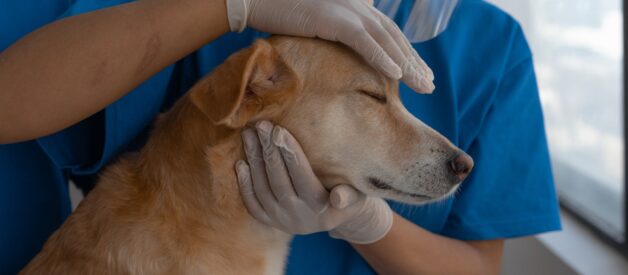Every new puppy owner knows the drill: the first few weeks are tough as your little one adjusts to their new home. But on top of that, they’re also teething. Just like human babies, puppies go through a lot of pain as their adult teeth start to come in – and they don’t always have the best way of dealing with it.
It is normal to find yourself constantly cleaning up drool or scrubbing chew marks off your furniture. Here are tips to help your pup through this tough time.
1. Give Them Something to Chew On
Puppies are going to chew – it’s just what they do. But if you give them something meant explicitly for chewing, they’re less likely to turn to your shoes or couch cushions. Different dog toys on the market are designed to help with teething pain, so find one your puppy likes.
But you have to be aware of objects that might obstruct their intestines. In some cases, this might need surgery to remove the obstruction. See here for more about emergency vet care services.
2. Give Them Something Cool to Chew On
You might not think that temperature would make a difference for something like teething, but it can actually help soothe your pup’s gums. Try freezing a wet washcloth or giving them a frozen Kong toy to chew on.
You can also find chew toys specifically designed to be cooled in the fridge or freezer. These usually have a gel filling that stays cold for a long time.
3. Give Them Plenty of Attention
This is most likely the most important thing you can do for your teething puppy. They’re going through many changes and need all the love and attention you can give them. Try to spend time with them, even if it’s just sitting on the floor and letting them chew on your hand.
They also might not be sleeping as well because of the pain, so try to be understanding if they’re up a bit more than usual. A tired puppy is a cranky puppy, so make sure they get enough rest.
But you must remember that giving attention doesn’t stop when they stop teething. In fact, as dogs grow older, they still need just as much – if not more – attention from their owners. Dogs are naturally sociable, and they thrive on human interaction.
These include vaccinations, regular check-ups, and other necessary vet services. To save money, you might want to look into getting them a pet wellness plan. Like human insurance, it covers most of the essential care your pup will need throughout their life.
4. Clean Their Mouth Regularly
As gross as it might sound, those teeth will eventually fall out. So you want to make sure their gums and mouth are clean and healthy in the meantime. Wipe down their teeth and gums daily with a soft cloth or gauze pad.
You can also give them treats specifically designed to clean their teeth. These usually have a rough texture that helps scrub plaque and tartar build-up.
5. Take Them to the Vet If You’re Concerned
If you’re worried about your pup and their teething pain, take them to the vet. They can check for any problems and give you peace of mind that everything is okay.
They can also provide you with professional advice on dealing with the teething process and pet teeth cleaning tips. So if you’re feeling overwhelmed, don’t hesitate to contact a professional.
The following are normal signs of teething in puppies:
- Excessive drooling
- Chew marks on furniture or other objects
- Loss of appetite
- Irritability or restlessness
- Sleeping problems
Let your vet know if they show other signs of illness, such as:
- Fever
- Diarrhea
- Vomiting
- Lethargy
- Rash around the mouth or on the belly
- Excessive crying or whining
Keep in Mind
Puppies undergo many changes in those first few months, but teething doesn’t have to be one of them. You can help your puppy through this tough time with patience and care. Just remember to give them plenty of attention, provide them with things to chew on, and clean their mouth regularly.
And if you’re ever concerned, take them to the vet for a check-up.



